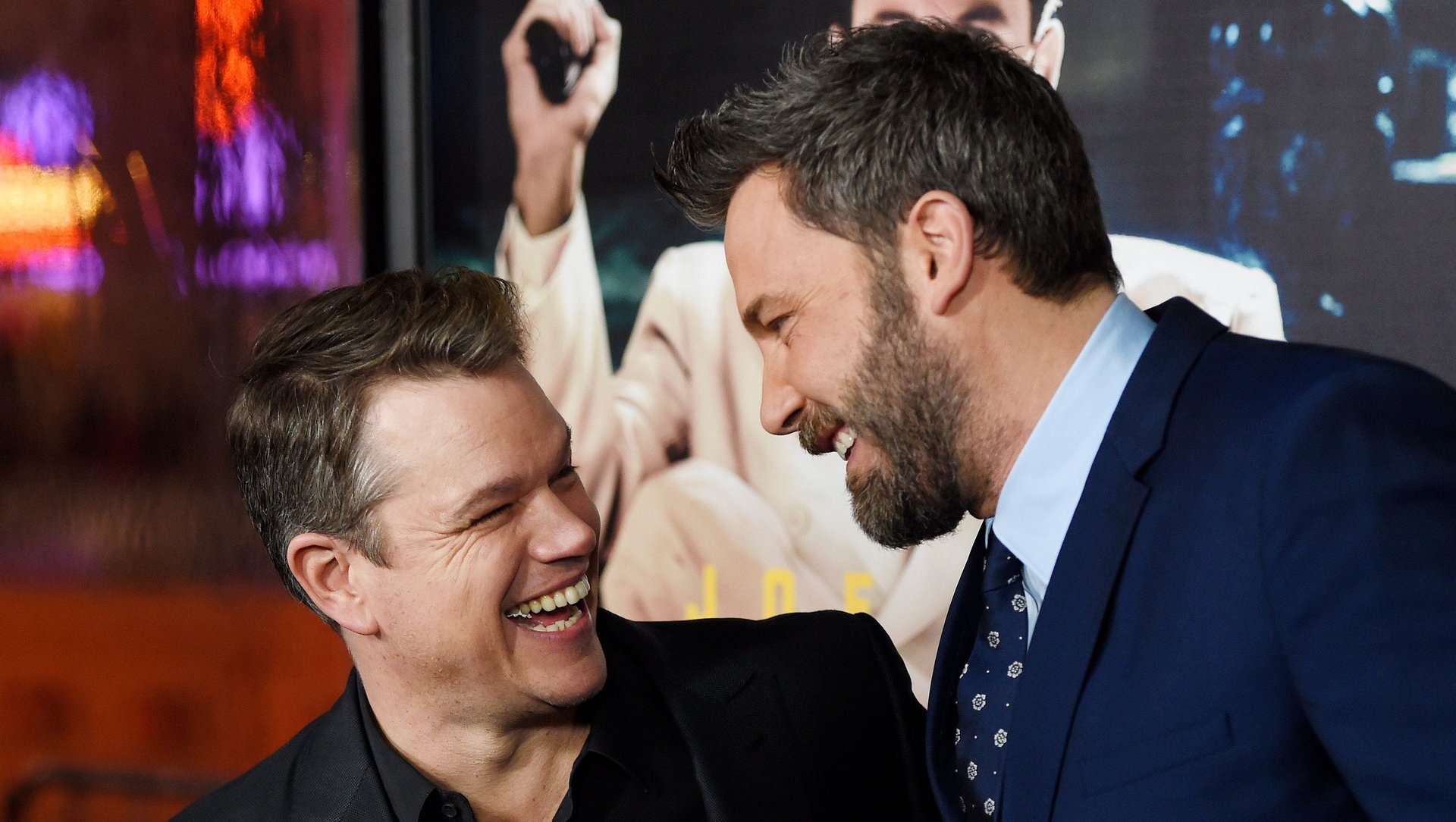Hollywood no longer waits even a week before turning the news into a movie
On July 28, journalist Jeff Maysh published a report in the Daily Beast on the wild, stranger-than-fiction story of an ex-cop who rigged the McDonald’s Monopoly game for a decade, building a vast network of co-conspirators across the US.


On July 28, journalist Jeff Maysh published a report in the Daily Beast on the wild, stranger-than-fiction story of an ex-cop who rigged the McDonald’s Monopoly game for a decade, building a vast network of co-conspirators across the US.
Today, Maysh’s story is set to be a major Hollywood movie. That’s right: It took less than a week from when the article ran online for the viral story to been optioned for film, with an A-list director and lead actor already attached to the project, according to Deadline.
Fox won the rights to Maysh’s story after a “ferocious” bidding war that included Netflix, Universal, and Warner Bros. Ben Affleck, who directed the 2012 Oscar best picture winner Argo, will direct, while his longtime pal and frequent film collaborator Matt Damon will star. The Deadpool writing team of Paul Wernick and Rhett Reese will pen the script based on Maysh’s reporting.
The Daily Beast feature explains how Jerome Jacobson, a former police officer who became the head of security for the company that produced the famous McDonald’s Monopoly game pieces, enlisted a cadre of friends, family, mobsters, drug dealers, and psychics to cheat the biannual sweepstakes and defraud the fast food chain of $24 million. The story is insane, and, in fact, reads a lot like a movie.
That the scandal is being turned into a Hollywood production isn’t nearly as surprising as the speed at which that metamorphosis has happened. The timeline between news headlines and films based on those headlines is rapidly shrinking.
The five-day gap between the Daily Beast article and the announcement of Affleck’s movie is not even the smallest this month. Only one day after all 12 members of a Thai boys’ soccer team and their coach were rescued from a cave, two separate film adaptations of the harrowing story were already in the works.
That shortly followed the June 8 announcement that prolific TV creator Shonda Rhimes was developing a series based on a May 28 New York magazine story about the notorious New York City socialite grifter Anna Delvey. Compared to the McDonald’s Monopoly and Thai cave stories, that two-week time gap now looks sluggish. How could Hollywood let any story stay unadapted for that long?
America’s film industry is always searching for interesting stories, and they’re increasingly letting journalists do the work. Some of these films never materialize, but often the act of buying up rights to fascinating real-life stories will at least prevent rival studios and producers from getting their hands on them.
With social media and the 24-hour news cycle dominating people’s lives, Hollywood producers want to strike while the iron is hot, while these stories are still part of the public consciousness, and before the next explosive thing draws everyone’s attention away.
The McDonald’s Monopoly scandal itself is actually a fascinating example of that phenomenon. While the criminal mastermind and his cohorts were arrested nearly 17 years ago, the saga hadn’t been in the spotlight until Maysh’s report last week. Why? The trial started Sept. 10, 2001. A day later, no one in the US was thinking about McDonald’s Monopoly scandal anymore. After that, it virtually faded from memory. Now Hollywood is quickly catching up on the story that got away.